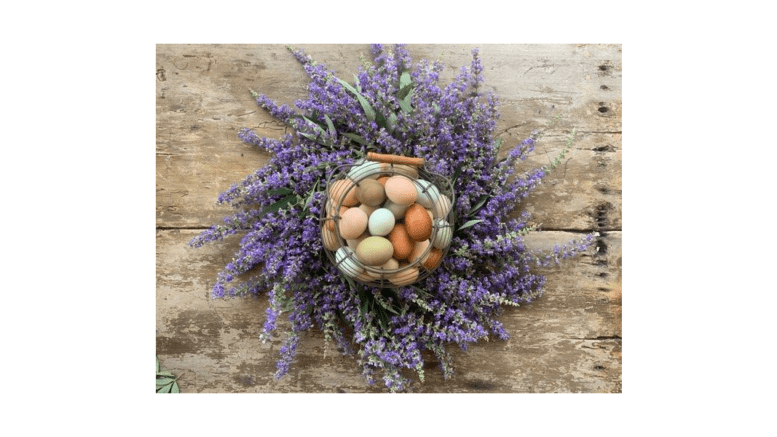by Brian Benefield [This article is part of the Second Helpings series of articles about food and eating in Cobb County]
I love eggs. No, I mean, I really, really love eggs. I eat them prepared in any way. Fried eggs, boiled eggs, poached eggs, scrambled eggs, or my absolute favorite evening appetizer, deviled eggs. Sorry, I didn’t mean to get too Bubba-ish from Forrest Gump. According to many doctors, they are an almost perfect food source with many amino acids and good fats that our bodies need. I recently brought my Mom a dozen eggs from the grocery store, and when I arrived at her house, she said, “why did you buy these fancy, organic kind? Eggs are just eggs.” I replied emphatically, “no. No, they’re not.” It has always struck me as odd that someone will pay $4-5 for a Venti mocha choca latte (whatever that is) and not the same amount for a high-quality protein source.
I visited Jessica Bailey on her five-acre farm in Powder Springs and was greeted by the welcoming committee. A large group of New Zealand heritage breed pigs were snorting, kicking up mud, and vying for my attention. As I drove out of the woodline, I viewed two large pastures where the sun shone bright and warmed the fowl and goats like a woolen blanket on a brisk late Fall morning. We have been getting the oblong poultry staple delivered to our house for several months from Pine Grove Farm, and there’s no comparison with the store-bought type in the taste and texture. The yoke is a deep yellowish-orange hue which makes for an incredible dippy egg if you’re into that kind of thing. Bailey told me she had some chickens at her house when she lived in Marietta, and some neighbors weren’t too ecstatic about the noise the yardbirds created, so in 2018 they bought this land and named it Pine Grove, after where she grew up in Louisiana.
We walked the farm and visited the wide varieties of heritage-breed chickens, some of which are specific egg layers, while others are hatching breeds to produce more chicks. These birds aren’t your typical agriculture production breeds, but animals you may find on your great-grandparent’s land many years ago. The term Heritage covers a broad spectrum that roughly means purebred livestock that is more suited to its environment and prospers in pasture-based settings. All the vividly colored birds seemed glad to greet us and were busy doing their bird things when suddenly a loud cock a doodle doo sound erupted from the coop. Jessica laughed and said, “someone just laid an egg.” If I could lay an egg, I’d belt out a fun sound, too. But I guess it makes more sense in the animal world. My wife gets excited like a kid in a candy store when we receive our weekly delivery and a blueish-colored egg is in the bunch.
We strolled over to the goat and cow pasture, where we met Honey Bee, a young female cow who thinks she’s a huge Golden Retriever, according to Jessica. Ms. Bee has kind eyes the size of dinner plates and loves a good neck rub. The goat named Punksatawney Phil (born on Groundhog Day) was quite frisky and wanted to be petted vigorously. He wouldn’t take no for an answer while butting his horns on the fence post. Jessica told me they produce and sell soap from goat’s milk and not only drop it off locally but ship it Nationwide. She is bringing me a sample to try with our next egg delivery and told me it has many healing qualities for sensitive skin and irritation.
Her husband, Blake, exclaimed, “My wife doesn’t do anything halfway and has learned the craft of farming quickly and is a natural.”
Bailey told me she had found countless resources of farming information online, and most other local farmers are willing to share best practices so that everyone can flourish. It seems arduous to raise and manage that many animals in this old-school manner, but Jessica says she loves doing it and wouldn’t have it any other way. I was blown away by their work ethic and how they are literally nourishing our community.
For more information, visit www.pinegrovefarm.org
